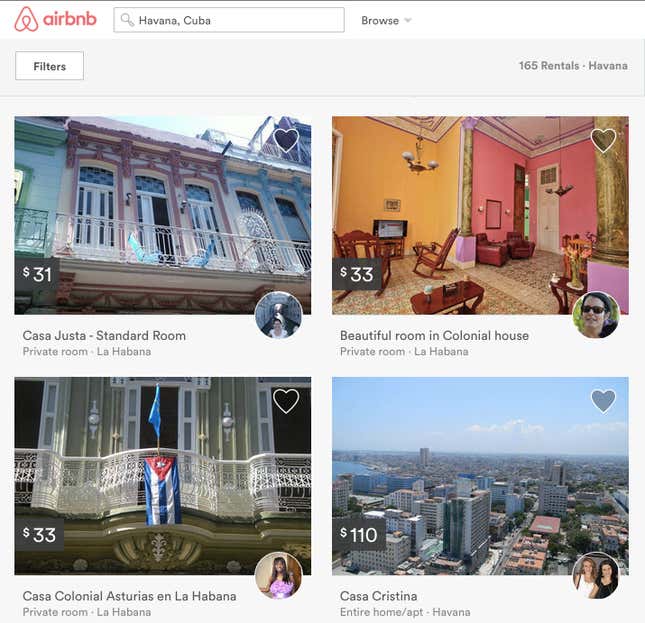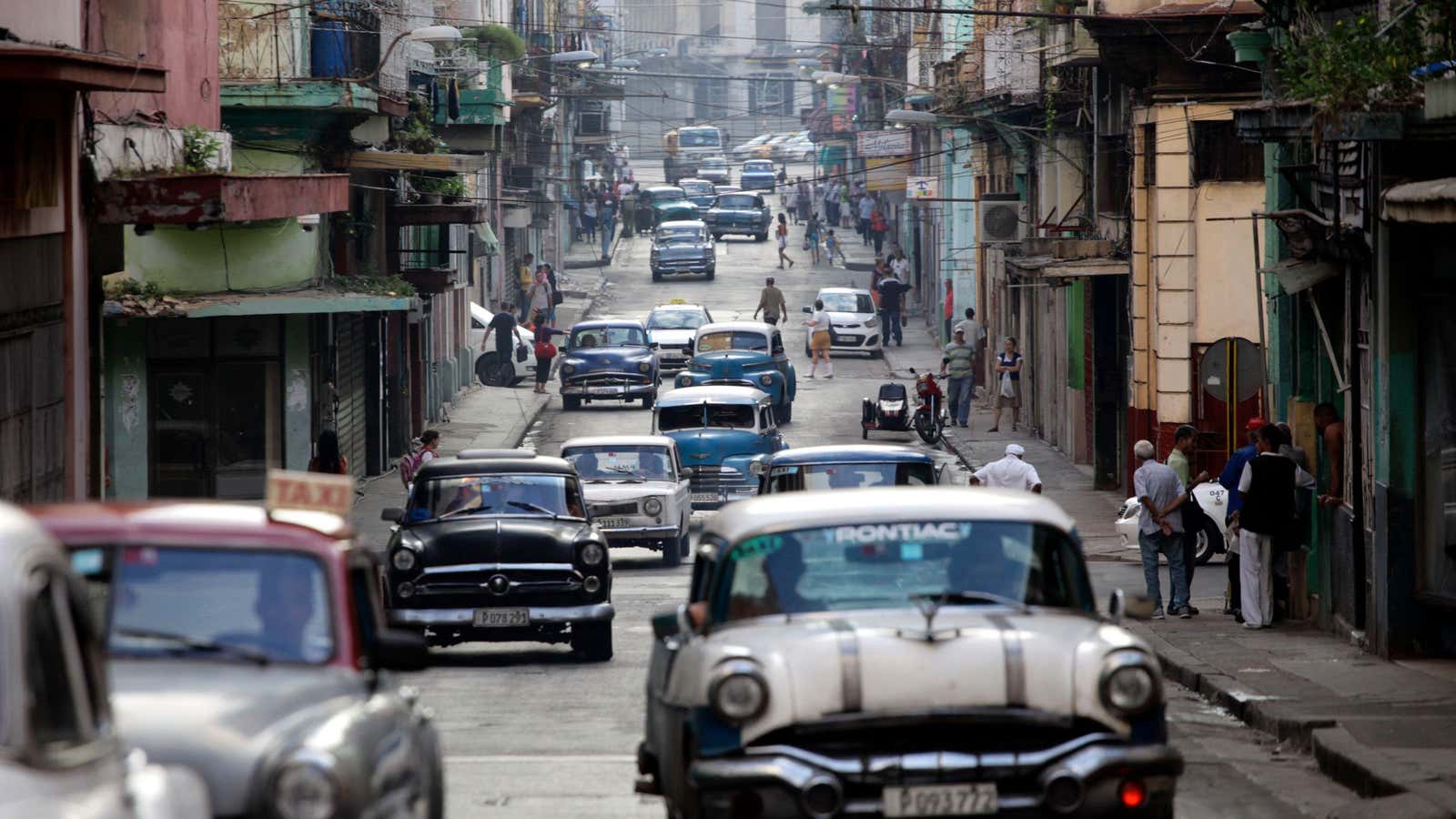Airbnb is one of the first US companies to head for Cuba, and the platform for renting someone else’s home, or a room in it, is ideally placed to take advantage of newly-relaxed restrictions on doing business in Cuba—but not for the reason you might think.
The obvious advantage is that Cuba’s extremely limited private industry is dominated by bed-and-breakfasts called casas particulares; they are permitted by the communist government to encourage tourism (mostly from Canada), to avoid spending on big infrastructure projects and to share the sector’s gains with citizens.
But the real reason that Airbnb will do well is its arms-length distance from any actual property. As a platform company, it connects customers to people with real estate to sublet, but doesn’t get involved with too many questions about that real estate and who owns it.
As tense US relations with Cuba relax, many companies are eager to to invest and market their products to Cuba’s 11.5 million citizens.

Executives say a major obstacle in their way is a hangover from the two countries’ break-up: Competing claims for damages dating back to when the Cuban government seized US property on the island after the revolution. Resolving those claims will be tricky, but doing so is a legal precondition to lifting the trade embargo on business with Cuba—and giving companies confidence to invest there.
Airbnb’s investment, however, manages to skirt this issue. It is simply the time it took to negotiate the right to operate with the Cuban government, and it doesn’t need to ship goods—or worry at all about who owned the houses it lists before 1959, or who will make claims on them in the future. Sometimes, that lack of investigation into real estate ownership has led to trouble, since in some places leases don’t allow sub-leasing—in New York City, for example, the platform has come under scrutiny and been accused of abetting hotel law violations.
But with a flood of tourists overwhelming Cuba’s limited hotels, the Cuban government is eager to give potential visitors other options for accommodation. Whether many hosts use the platform remains to be seen—while there are already more than 165 listings for Airbnb spots in Havana, only 14% of Cubans have internet access, mainly through internet cafes where an hour’s access costs $4.50—an high rate in a country with an average monthly income of $20.
